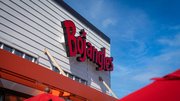News
NRA doubts Mad Cow will impact menu prices
March 13, 2006
WASHINGTON — Government investigators are tracing the history of an Alabama cow that has contracted the mad cow disease. The USDA confirmed the infection March 13. Unable to walk, the cow was destroyed last week by a local veterinarian and buried on the farm.
"This animal did not enter the human food or animal feed chains," the department's chief veterinarian, John Clifford, told reporters during a Monday conference call. "We are now working with Alabama animal health officials to conduct an epidemiological investigation to gather any further information we can on the herd of origin of this animal. The animal had only resided on the most recent farm in Alabama for less than a year."
The National Restaurant Association says it will not impact menu prices. Officials said the NRA is confident that the U.S. beef supply is safe.
"This clearly underscores that the regulatory controls in place today have been and are effective in protecting animal health, consumers and the nation's food supply," said Annika Stensson, NRA spokesperson. "It is important to note that this is an animal health issue and not a food safety issue. Because the restaurant industry is a food purchaser as well as a food server, restaurants are in many ways consumers when it comes to this issue."
Stensson said the NRA will continue working closely with USDA and beef producers on this issue. From an international standpoint, the outbreak has major implications.
"If the infected cow turns out to have been born before April 1998, when the South Korean government banned meat and bone meal, it will not influence the South Korea-U.S. beef import agreement," the South Korean Ministry of Agriculture and Forestry said in a statement issued March 14.
Under the January agreement, South Korea planned to resume limited imports of U.S. beef by the end of March.
The animal was a Santa Gertrudis breed, a red-colored beef cow that thrives in hotter weather in the southern United States.
Federal and state investigators are working to determine where the cow was born and raised and find any herdmates or offspring.
 ChatGPT
ChatGPT Grok
Grok Perplexity
Perplexity Claude
Claude








